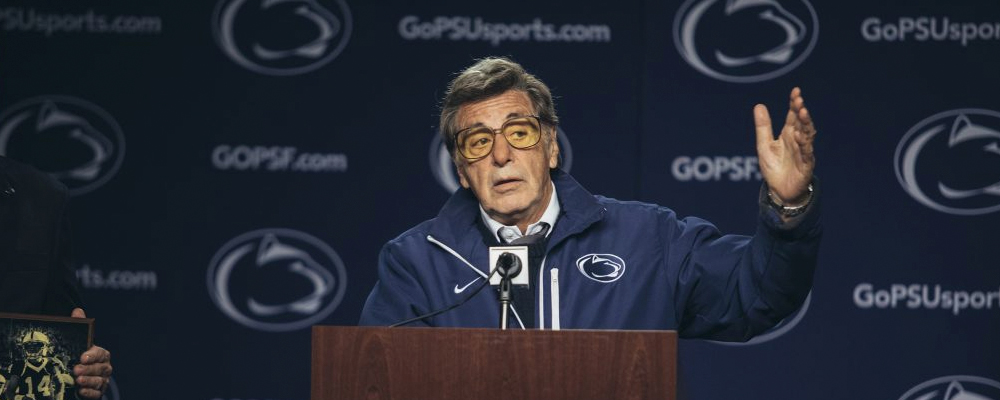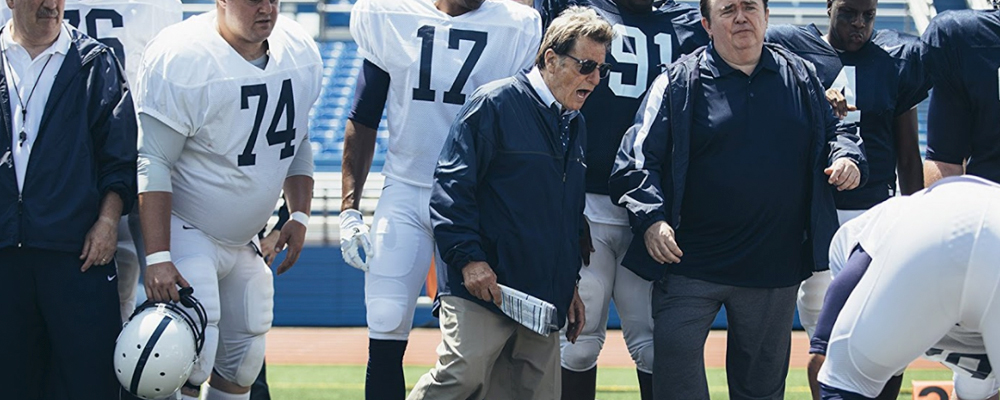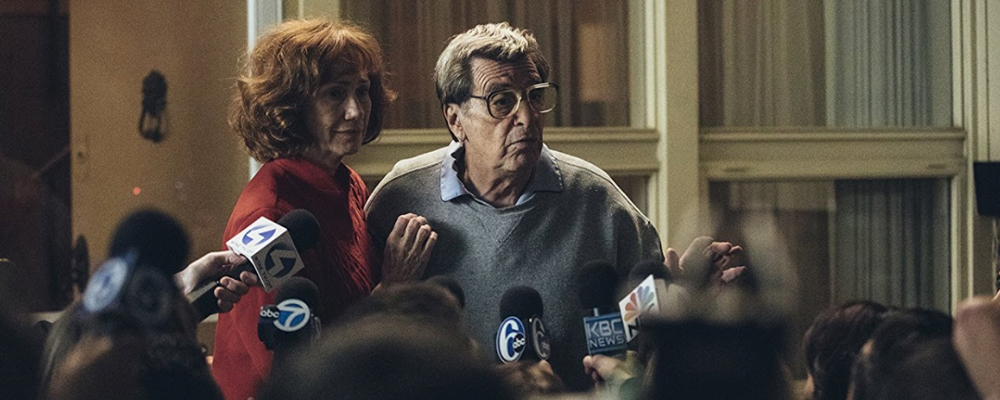Al Pacino Plays Disgraced Penn State Coach in HBO’s ‘Paterno’
Alci Rengifo
Joe Paterno had become an emperor of college football by the time a sexual abuse scandal took him down in 2011. In HBO’s “Paterno” he becomes a shell of a man as played by Al Pacino, clueless to the building storm and its implications. If this movie is to be believed, Paterno was not so much a villain as an aloof mind. He staggers and wanders through hallways while his family presses the urgency of what is happening. This is a fascinating figure, but the movie makes the classic mistake with this kind of story. Director Barry Levinson wants to cover all angles in a short amount of time instead of just focusing on one.
It is 2011 and Paterno is basking in his 409th win for Pennsylvania State University as head coach of its football team. But as the applause thunders a local reporter for the Patriot-News, Sara Ganim (Riley Keough), is snooping around campus chasing a story involving the possible sexual abuse of children by former Penn State assistant coach Jerry Sandusky (Jim Johnson). When an official indictment is issued against Sandusky the evidence and victims come to light. Immediately the key question is raised concerning how much Paterno knew, when and if he did anything about it. At first Paterno seems to brush away the brewing scandal, proclaiming his innocence (or ignorance) to his worried family. But when the evidence continues to mount and other names are indicted, Paterno starts running out of space to avoid the press and public.
“Paterno” is that curious case of an interesting performance looking for a script with more meat. Because Al Pacino needs no introduction, we assume he will deliver, and he does. His Paterno is set apart from the official image. Here he is a withered old man who wonders aloud what “sodomy” even means. His son explains the term as, “think of Achilles and Patroclus.” Already in his 80s, Paterno wheezes away one-word answers to everything. This is a far cry from Pacino’s ferocious fictional football coach in Oliver Stone’s “Any Given Sunday.” But Levinson never allows this story to become an insightful tragedy. There are few attempts at forming a character out of Paterno and inquiring about what makes him tick. His scenes are reduced to talking heads as family and friends discuss the details of the case, ask him about it, and then go back to simply describing everything. There is never a single scene between Paterno and the focus of the entire case, Sandusky. The movie has no idea what relationship these two men had together, or what Paterno even thought about the guy. Excuses are never made for the coach, but the film struggles in finding the proper frame for him. His most haunting moment comes near the end, during a nightmare rife with guilt. Levinson also shies away from diving into the world of university politics. Major decisions and events mostly take place on distant television monitors. Desperate to rush facts across the screen, Levinson delivers a mere dramatization of the event, not a drama culled from it.
The other angle of “Paterno” is the investigative journalism aspect. Ganim won the Pulitzer Prize for her work on the Penn State scandal and she is a worthy personality to follow. But because Levinson wants to juggle between her and Paterno, these moments too never grow in detail or drama. Riley Keough as the reporter is also reduced to simply repeating facts to other characters. If “Paterno” had wanted to be a take on how investigative journalism cracks these cases, then it could have easily followed the formula of a film like “Spotlight,” where you see and feel the tension and rush of newspaper reporting. Of course when you have Pacino on the marquee he will get his screen time, in which case this could have been an engrossing biopic.
There are still some interesting issues raised in “Paterno.” At times the story hints at the sheepish nature of college football and its devoted legions. When Paterno was eventually fired there were riots in which students attacked property and overturned cars. In one of the movie’s best scenes a crowd of fans and students chant in front of Paterno’s home, swearing loyalty to their hero, or better yet a living mascot. The moment descends into dark humor when one of Paterno’s adult sons, played by Greg Grunberg, tries to talk to the crowd and instead displays his lack of PR skills.
What “Paterno” leaves us with is a gloomy, jumbled drama with interesting pieces looking for a better or wider interpretation (the movie is only 1 hour and 40 minutes long). Even the victims are not given proper space to tell their stories. Who was Joe Paterno? A film can never know for sure, but the director should try and ask. What does much of this case mean in the long run? Levinson ponders the question, but the answer gets lost in the clutter.
“Paterno” airs April 7 at 8 p.m. ET on HBO.




